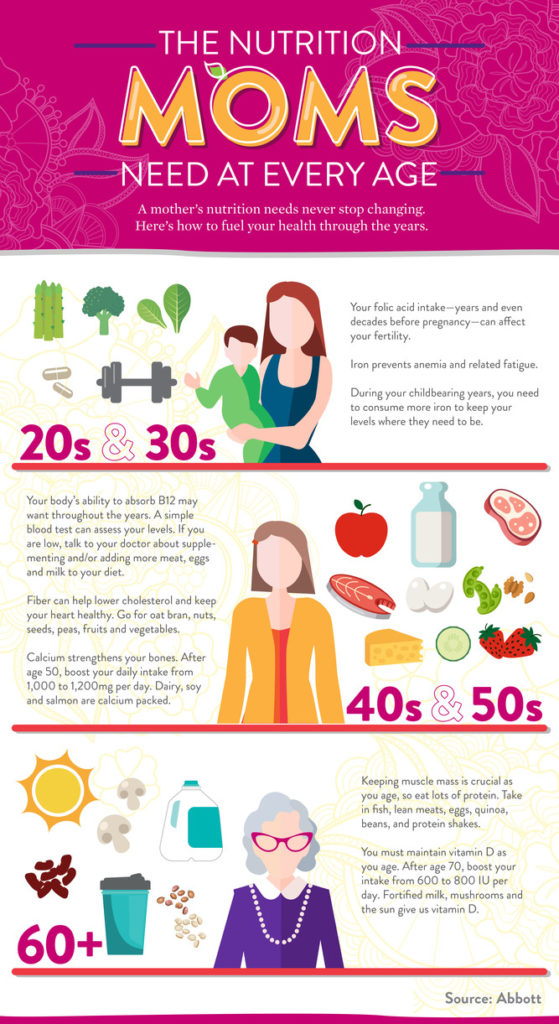The life of a woman is very demanding. Apart from fulfilling several responsibilities, there is a constant pressure of looking in a certain way. All these conditions make it difficult for a woman to stick to a healthy diet.
Eating the right kind of foods can support a woman in multiple ways. It not only helps maintain a healthy weight but also supports them throughout the different stages of a woman’s life. A healthy diet can help control of symptoms related to pre-menstrual syndrome (PMS), boost fertility, make pregnancy easier and without any discomfort, keep the skin healthy, and also keep the bones of a woman strong.
More than aesthetic appearance, a healthy diet plays an important role in the prevention of specific conditions that are most likely to affect women. It has been scientifically researched that women are at an increased risk of several conditions, including osteoporosis, weaker bones, gallbladder disease, and urinary tract infections. Also, there are a couple of other challenges such as the emergence of diabetes and hypertension during pregnancy.
Therefore, a woman must keep all these things in mind as they plan their daily meals. However, there are many women who are not sure as to what exactly they should include in their diet to fulfill their daily requirement for specific nutrients such as iron, folate, magnesium, calcium, and proteins.
The objective of this article is to provide a list of foods that are helpful in the prevention of conditions that are specific to women. Additionally, it explores the best food options under each category of nutrients that women must get every day without any fail.
Women and The Nutritional Deficit
Women are at a greater risk of compromising their own health. Sometimes that is too busy looking after their family, while at other instances they are too busy with office demands. On the other hand, there are many women who sacrifice to eat proper meals in the name of dieting. However, this often leaves them cranky and tired because of nutrient deficiency.
The daily nutritional needs vary from one woman to another, depending on their age, weight, height, medical status, and lifestyle. While the hormone levels in men are quite stable and tend to remain predictable, the case with women is not the same. Their hormone levels fluctuate every month and throughout their lives, so their dietary needs also change from time to time. This is why women continue to suffer from the nutritional deficit.
Even though women may blame their busy schedule and daily responsibilities for not being able to have a healthy diet, this is generally not the case. Health is something that no one should compromise with and this holds true for women as well. Every woman should unfailingly get the recommended amount of nutrients every day through freshly prepared meals. Consumption of a variety of foods and vegetables is important for the overall health of any individual.
The following sections detail on the foods that women should try to incorporate in their daily diet.
Which Nutrients To Get In Plenty?

Calcium, Magnesium, and Vitamin D For Stronger Bones and More
It is often believed that only calcium is needed for strong bones. However, that is not true. Calcium is needed in combination with magnesium and vitamin D for stronger bones. It is important for women to get all these three nutrients daily because they are at an increased risk of osteoporosis.
Magnesium helps by increasing the absorption of calcium from the blood into the bones. In the absence of sufficient amounts of magnesium, the calcium would continue to circulate in the blood and would not reach the bones insufficient amount. Some of the rich sources of magnesium include green beans, broccoli, cucumber, and different seeds.
On the other hand, vitamin D is essential for the metabolism of calcium. Sunlight is the best source of vitamin D. Some of the food sources of vitamin D include shrimp, eggs, salmon, and vitamin-D fortified milk. Vitamin D is also essential to maintain female fertility. Several studies conducted in the past highlight the importance of this nutrient, especially considering the fact that vitamin D receptors have been discovered on the surface of cells in the ovaries, testes, and placenta.
Calcium plays many other important roles than just strengthening the bones. Deficiency of this vital nutrient can lead to many discomforting symptoms, including anxiety, depression, and irregularity in heart rhythm. Calcium plays a great role in sleep regulation as well. This is the reason why women are often advised to take additional calcium supplements at bedtime.
The daily requirement of Calcium in Women: 1000 to 1200 mg/day
The daily requirement of Magnesium in Women: 320 to 400 mg/day
The daily requirement of Vitamin D in Women: 600 IU/day
The following are some of the good food sources of calcium that women must include in her daily diet:
|
Food source
|
Quantity (ounces)
|
Calcium (mg) per serving
|
|
Low-fat yogurt
|
8
|
415
|
|
Low-fat milk
|
8
|
299
|
|
Calcium-fortified cereals
|
1 cup
|
100 to 1000
|
|
Mozzarella
|
1.5
|
333
|
|
Kale (raw)
|
1 cup
|
100
|
Iron For Prevention Against Anemia
Iron is directly responsible for the production of hemoglobin that carried oxygen in the blood. Apart from blood, iron is absolutely essential for the health of the skin, hair, and nails.
Because of menstruation, the demand for iron in women of childbearing age is twice as much as that of males. The demand increases even further during pregnancy and childbirth. However, a majority of women are not able to get sufficient amount of iron daily, which results in anemia.
Anemic women feel lethargic, irritated, and exhausted. Additionally, they start experiencing breathing difficulty after small physical activity or effort. Iron deficiency can not only affect the mood of an individual but also cause depression-like symptoms such as exhaustion and difficulty in concentrating on things.
Daily requirement of iron in women:
|
Category
|
Daily Requirement (mg/day)
|
|
Adolescent women
|
15
|
|
Adult women
|
18
|
|
Pregnant women
|
27
|
|
Lactating women
|
9
|
|
Older women (51+)
|
8
|
The following are some of the good food sources of iron that women must include in her daily diet:
|
Food source
|
Quantity (ounces)
|
Iron (mg) per serving
|
|
Iron-fortified cereals
|
1 serving
|
18
|
|
Dark chocolate
|
3
|
7
|
|
White beans
|
1 cup
|
8
|
|
Kidney beans
|
0.5 cup
|
2
|
|
Spinach
|
0.5 cup
|
3
|
Folate For Enhanced Fertility and Prevention of Congenital Issues
Vitamin B9 is also known as folate. A majority of women do not get this nutrient in enough amount in their daily diet. Sufficient folate consumption has been associated with the decreased risk of neurological birth defects. Therefore, it is important for women to take folate supplements when pregnant and while planning a pregnancy.
Folate has also been associated with the reduced risk of certain types of cancer and heart diseases. Therefore, every woman should get folate in their daily diet whether or not she is planning a pregnancy.
Insufficient folate levels in the body can lead to irritability and fatigue. Additionally, such women may feel lethargic and their concentration may be hampered.
The daily requirement of folate in women:
|
Category
|
Daily Requirement (mcg/day)
|
|
Women planning pregnancy
|
400
|
|
Pregnant women
|
600
|
|
Breastfeeding women
|
500
|
The following are some of the good food sources of folate that women must include in her daily diet:
|
Food source
|
Quantity (ounces)
|
Iron (mg) per serving
|
|
Beef liver
|
3
|
215
|
|
Spinach
|
0.5 cup
|
131
|
|
Black-eyed peas (cowpeas)
|
0.5 cup
|
105
|
|
Breakfast cereals
|
1 cup
|
100
|
|
Papaya
|
0.5 cup
|
27
|
Tips to Ease PMS
- Incorporate foods rich in zinc and iron in your daily diet
- Increase calcium intake
- Avoid alcohol, sugar, caffeine, and deep fried foods
- Take vitamin supplements
- Cut down salts to relieve bloating
Tips to Ease Menopause
- Increase calcium intake along with magnesium and vitamin D
- Eat foods rich in Omega-3 and Omega-6 fatty acids
- Include flax seeds in the daily diet
- Eat soy-based products
- Limit the consumption of sugar, wine, coffee, and white flour products


